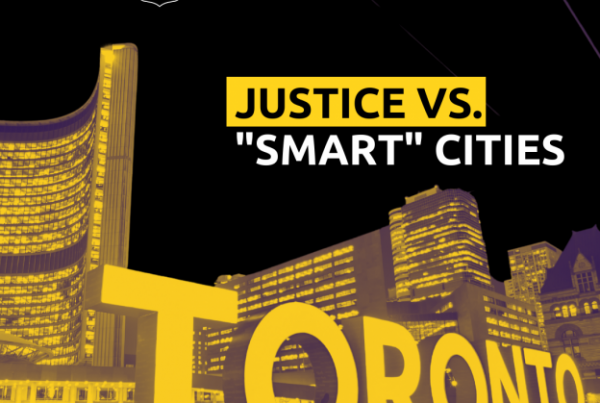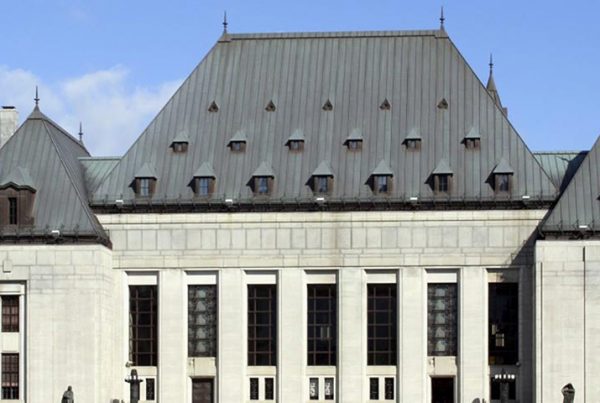In 2019, CCLA began a significant fight for privacy rights in Canadian cities.
It began with a smart city project in Toronto, but it has the potential to set a precedent for all cities and city residents across the country.
A year before a deal between Sidewalk Labs (Google’s sister company) and Waterfront Toronto was struck, Sidewalk had envisioned what a smart city under their care would look like. They articulated their founding vision into a 437-page yellow book which outlined how residents would be rewarded based, in part, on how much data they were willing to share. They proposed that cities give them the authority to tax residents and to create and control public services like schools and transit. They even proposed that Sidewalk have its own police authority and an alternative approach to jailing residents.
While their vision for Toronto doesn’t go quite so far, its foundation matters. We fought against the creation of a Toronto test-bed for products designed to leverage data and monitor or ultimately influence human behaviour, porting an internet model of surveillance capitalism from our computers to our city streets. What is happening in Toronto is the tip of the iceberg when it comes to erosion of privacy rights in projects that pitch the ability to monitor, count, sort, and track people as a feature, not a flaw. But is this really “smart”?












